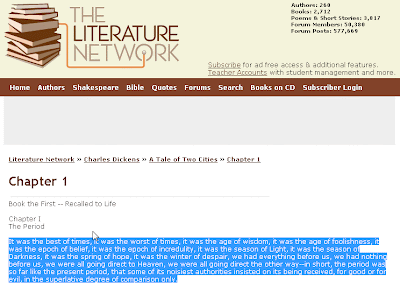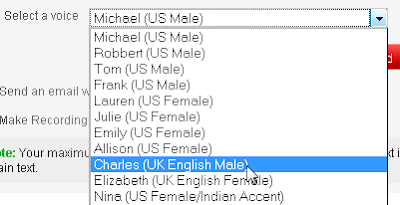
To begin using this resource, register for an account.
 After registering, log in.
After registering, log in.
After successfully logging in, click on the CREATE A NEW READING button.

Give the new recording a title.

Grab some text to be read. In this case, I'm visiting The Literature Network where I've copied a chunk of the introductory chapter of one of my favorite works, A Tale of Two Cities by Charles Dickens.

Afterward, return to ReadTheWords, and paste the text into the INPUT TEXT box.

As some TTS readers are too fast for many listeners, ReadTheWords makes it possible for users to slow their digital readers down a bit.

Want a British work of literature to be read by a British narrator? No problem! ReadTheWords allows users to choose a particular voice (such as Charles, a UK male).

Next, press the red READ button.

After the "recording" phase of the work is over, users see a screen that allows them to play the recorded text.

Note that users may also download an mp3 file of the text.

This is something that makes all of the effort worthwhile. Why? Notes, words from a webpage, words from any file where copying text is possible can be converted into an mp3 file. The resulting mp3 file can be loaded on an iPod or any other mp3 player. Information taht was once locked up in text can be listened to anytime the user wishes to reconnect with it. This resource gives students another means of accessing and processing content.
Yes, the voice is not a natural human voice. It does sound somewhat robotic. That said, this service is free. For many pupils who learn by listening, ReadTheWords is a no-cost way of drawing upon the strength of their particular learning style.





No comments:
Post a Comment